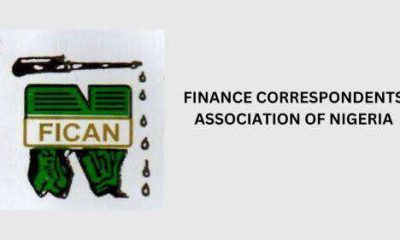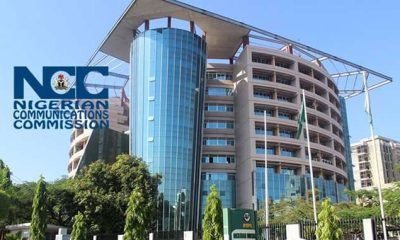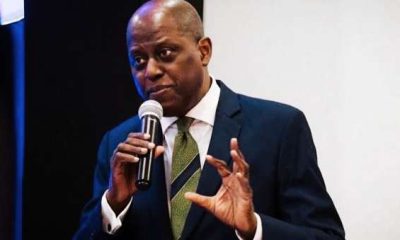Business
As Emefiele breaks second term jinx

…analysts hail reappointment
Last week Wednesday, President Muhammadu Buhari shook the country’s economic landscape with his decision to reappoint Mr. Godwin Emefiele, Governor of Central Bank of Nigeria (CBN) for second term.
In a country where politics of region and religion take precedence over all else, analysts had begun to project where Emefiele’s possible replacement will come from. The South West had appeared to be the likely destination. But even so, many had argued that given Buhari’s antecedents, a Northern CBN governor is much likely.
The president, however, surprised many by deciding to retain the Delta State born former CEO of Zenith Bank for another term of five years. A development some analysts and industry players have praised it as a positive step.
When news broke on Wednesday that Buhari had signed a letter for Emefiele’s tenure renewal and sent same to the Senate for confirmation in accordance with the CBN Act which provides for senate approval, it settled nerves. But triggered a debate. While some hailed it as great news for the economy, others argued it was more of a political decision.
“I think he (Emefiele) is dancing towards politics,” says Leo Ukpong, Professor of Financial Economics and Dean, Faculty of Business Administration, University of Uyo. “Personally, I would have loved to see a more independent CBN.”
Emefiele who was first appointed in 2014 by former President Goodluck Jonathan and was retained by Buhari when he took office in 2015, would be the first CBN governor since 1999 to serve two terms and the second in history. And many analysts say it is positive news given that it would guarantee policy consistency and continuity.
“The reappointment of Emefiele is absolutely necessary for the continuation of foreign exchange stability and elimination of volatility in the Forex market,” said Alhaji Aminu Gwadabe, President, Association of Bureaux De Change Operators of Nigeria (ABCON)
“It is absolutely necessary for the pillars that he has built in terms of stability, uniformity, convergence and diversifying the sources of foreign inflow to continue.”
Emefiele has in the past five years done the difficult job of steering a troubled economy. The country witnessed a recession in 2016, it’s GDP contracted to -1.58 percent from 2.7 percent in 2015 and in 6.3 percent in 2014. It was the second time the country would go into a recession – the first being three decades ago during Buhari’s military regime; and within the period, the naira lost over 100 percent of its value to the dollar, ballooning from about N200 to the dollar to over N500 at some point.
But Emefiele laboured to ensure the country sailed through the most difficult times. Stability is returning in the exchange rate, inflation is down and foreign reserve is growing again after it went down in the lead up to the 2019 polls.
CBN under him has indeed achieved feats in various aspects of development finance, foreign exchange management, financial inclusion and payment system in the past five years. Foreign reserve has risen specifically to $45 billion. The bank’s Investors’ and Exporters (I& E) Window launched in April 2017 as well as the forex window for Small and Medium Enterprises, SME, have helped to ensure some stability in the Forex market.
The I & E Window allows investors and exporters to purchase and sell Forex at the prevailing rate. Since its establishment, the Bank has recorded about $35 billion in autonomous inflows through it . As a result, exchange rate pressures eased considerably across all markets as the rates converged to about N360/$.
At the Bureau De Change segment, the naira has appreciated from around N525 to the dollar in February 2017 to about N363 per dollar at the moment. Rates at the I & E Window, as Emefiele revealed recently, “appreciated from nearly N382 per dollar in May 2017 to just over N360 per dollar.”
He had noted at a press conference in the US recently that: “The outcomes of the recent CBN forex policy has led to stable exchange rate, forex liquidity, vibrancy in the capital market, improved supply of forex impact on Purchasing Managers’ Index, PMI, improved forex supply expected to impact positively on Gross Domestic Product, GDP growth and more companies declaring profit and offering rights issues.”
These strides, for many, are good enough reason to retain him. “I believe appointing him for second term is better than bringing in a new person,” said Dr. Vincent Nwani, Business and Investment Consultant and former Chief economist for Lagos chambers of commerce and industry, LCCI. “As they say, the devil you know is better than the angel you don’t know. The thing is, if you are bringing somebody else, you might end up with someone who can’t do the job, it’s a 50-50 chance.”
Dr. Nwani, an economist, noted that from what Emefiele has done in the past five years, his reappointment will be received positively by businesses. He argued, like Gwadabe, that his reappointment will ensure there is no volatility in foreign exchange market.
“We have seen what he is able to do for the last five years. It is positive news for businesses. The uncertainty that would have come with a new person is out. We are not going to see volatility in foreign exchange for example.”
The bank has been able to boost local production of 43 items it banned, creating domestic employment generation, mostly in the agric sector. Its intervention in areas of agriculture, manufacturing, Micro, Small and Medium Enterprises (MSMEs) and infrastructure has, for some observers, have yielded positive results. And for them therefore, his second term is a welcome development.
“His reappointment is good news for the economy. The fear was that given the way things have been done in the past, whether other interests would supersede. But the truth is that you can’t fight success. There is success on ground. We might not have reached El Dorado but we’re on the right track,” noted financial consultant and former banker, Dr. Boniface Chizea.
“We have stability in foreign exchange. Inflation rate is coming down. It was once at about 18 percent, but now it is about 11 percent. And you look at the reserves; it is almost getting to $50billion. You look at all these indices and you have to give him credit.
“When you consider the developmental strides in the Central Bank, they are just fantastic. You look at the Anchor Borrowers’ Programme, you look at what they are doing for financial institutions. You can’t see all these and not want him to continue.
“Our fear was that sentiments may come into, but it’s a good thing that such didn’t happen. If they had made a change they would have created some instability. The new person will not continue what the man is doing. He would want to change a few things and people would want to take advantage and that might not be to the best interest of the economy.”
The Anchor Borrowers Programme (ABP) targeted at collaboration with anchor companies involved in the production and processing of key agricultural commodities.
Under the Programme, anchor firms serve as off-takers with out-growers involved in production. The bank claims that “As at December 2018, a total sum of N174.48 billion had been disbursed through 19 participating Financial Institutions (FPIs) to finance 902,518 farmers, working with 194 anchor companies. During the priod, 2.8 million and 8.4 million direct and indirect jobs respectively had been created.”
But such figures pale into insignificance when compared with the country’s unemployment figures which increased from 17.6 million in the fourth quarter of 2017, to 20.9 million in the third quarter of 2018 according to National Bureau of Statistics (NBS) figures. Indeed, four million people lost jobs in 2017 alone.
The economy grew by 1.9 in 2018, an improvement from 0.83 percent in 2017, but still a big low even within the sub-region. And with a population growth of over 3 percent, amid growing poverty – the country last year became headquarters of global poverty with nearly 90million of its 200 million people living in extreme poverty according to the World Poverty Clock – and resultant insecurity, even the most optimistic observers agree that a lot more has to be done by the Buhari government beyond retaining Emefiele, to improve the country’s economic fortunes.
“What I can’t say, however, is to what extent it is going to impact generally on the economy,” Dr. Nwani emphasised. “But in terms of maintaining stability, the reappointment is the right thing to do.”
“I can’t assess whether it is a good move or not because we don’t know the policies of this government economically, said Mr. Emeka Madubuike, a fellow of the Institute of Chartered Accountants of Nigeria (ICAN) and former president Chartered Institute of Stockbrokers of Nigeria (CIS). “From the capital market, we don’t see the effect. So, it’s neither here nor there.
“For purposes of consistency, it makes sense. But it is a question of whether you have people who want to do something differently and to make a difference because we need policies that will transform the economy. We cannot continue along the same path.”
Since 2017, the CBN has focused its attention on the development of payments system, with a view to migrating from cash-dominated environment to an electronic payments market. Many milestones have been achieved since that time. The level of development attained in the national payments system through the implementation of the PSV 2020, has necessitated the shift of focus to managing the risks in the payment system.










